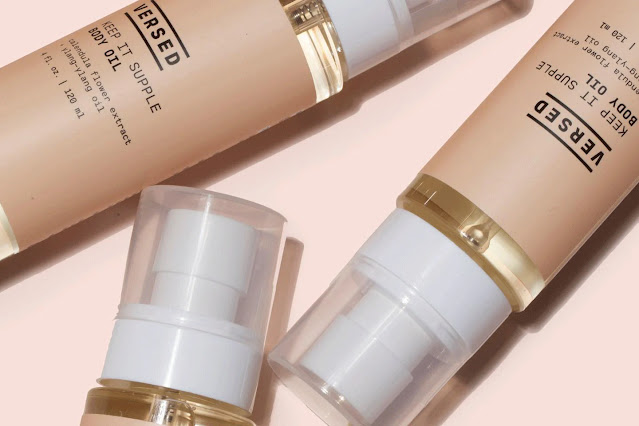
The fact that your body goes through major changes when you're pregnant is no news. However, many expectant mothers don't always expect their skin to experience things it's never experienced before.
Hormonal fluctuations and increased blood flow (fact: your body produces 50 percent more blood during pregnancy) can cause your skin to react in ways you won't be able to detect.
While some changes are welcome—yes, that pregnancy glow is real—other changes may leave you wondering what's normal and what's not. Don’t stress – read on to find out everything you can expect and how to cope.
"Pregnancy Mask". Or more formally known as chloasma/melasma. These dark spots may appear on your face due to increased hormone levels in the body. Before you ask yourself, "Is this typical?", here's this: More than 50 percent of women will develop melasma during pregnancy.
Method: During pregnancy, your skin can become especially sensitive, so sun protection is crucial. Wearing sunscreen every day (which we absolutely should do) and adding a layer of protection (such as a wide-brimmed hat) will reduce your skin's exposure to the sun, which can cause dark spots to appear.
High temperatures can also worsen melasma, so keep cool. Oily skin and acne. Whether you've always been prone to acne or have always clear skin, pregnant women may experience an increased incidence of acne during pregnancy.
Similar to what happens with acne and freckles as a teenager, increased hormone levels can cause your skin to produce more oil, leading to more breakouts than usual.
Method: Choose gentle cleansers and products for oily skin, just like you would with other acne. Our Find Clarity Purifying Mask is a great option, plus, nothing helps moms-to-be lose weight like calming self-care!
Stretch marks. Let's get one thing straight: stretch marks. yes. normal. Almost 90% of women develop stretch marks during pregnancy, even those who don’t expect them. As your body gains weight, you eventually need room to grow another person!
The skin has to accommodate the extra space, causing these red and pink streaks to appear on the skin. Method: Unfortunately, there is no magic bullet for stretch marks. However, by working to maintain your skin's elasticity, you can prevent it from forming again and help it fade.
Keeps skin soft and moisturized - research shows hyaluronic acid helps a lot. Hydrate, moisturize, moisturize. There's also no harm in exercising, drinking plenty of water, and eating foods rich in vitamins E and C.
Skin tags. Although less common, these benign skin growths can occur due to increased hormone levels and weight gain. method: Even if there's nothing you can do about it (although tea tree oil can help), there's no need to worry.
They'll most likely disappear after birth, and if not, you can easily have them removed by a dermatologist. spider veins and varicose veins. You may notice spider veins (small and red) or varicose veins (large and blue) during pregnancy due to increased blood circulation.
Method: Both symptoms may go away after delivery, but you can also find relief by avoiding prolonged standing and sitting (especially cross-legged), getting enough exercise, and increasing your vitamin C intake.
Rash and itchy skin. Abdominal swelling can cause itching and discomfort. This is especially true if you have eczema. Method: Keep skin beautiful and moisturized; we recommend our Stay Soft Body Oil.
If you notice that the itching spreads to other areas of your body, you may have PUPP (Pruritic Urticarial Papules and Plagues), and your doctor may recommend specific ointments and treatments. Most skin conditions during pregnancy disappear after birth or sometime after birth.
However, if you are concerned, always talk to your doctor. If you are curious about what skin care products are available. To find out which products are safe to use during pregnancy and which are not, check out our handy guide to safe skin care during pregnancy.

Post a Comment